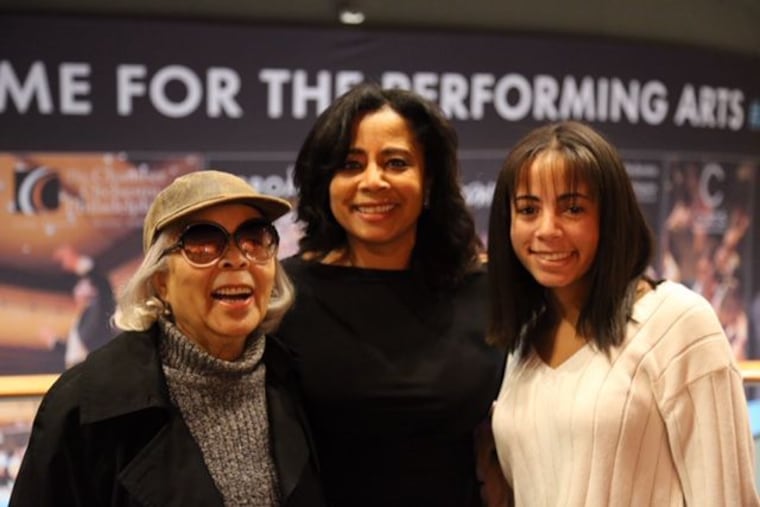Enjoy family at Thanksgiving but have tough conversations too | Jenice Armstrong
Since Renee Chenault Fattah started working on the documentary two years ago, she’s talked so much about the disease that, "my girls are so sick of hearing about Alzheimer’s." But at least now, she says, "everyone knows the game plan."

People don’t like talking about certain things, such as their mortality and their own health.
I know I don't.
But on Saturday, after my husband and I watched Renee Chenault-Fattah’s powerful new documentary, Our Right Mind: Alzheimer’s and Other Dementias’ Impact on Communities of Color, we had one of those what-if conversations.
You know the kind. You ask, what if that happened to me?
I would want to be admitted into a state-of-the-art nursing home that specializes in dealing with patients with memory issues. My husband isn’t in favor of that. We went back and forth and then drifted off before ever finishing the conversation. It’s one that I’m sure we’ll return to again as we get closer to age 65, after which the risk of developing the disease doubles about every five years, according to the Alzheimer’s Society.
» READ MORE: Renee Chenault-Fattah is working again but only on causes she's passionate about | Jenice Armstrong
It’s an important talk to have. Not at the dinner table on Thanksgiving, but after the dishes have been cleared and relatives are still in town. Chenault-Fattah’s documentary, which airs on NBC10 at 7 p.m. Saturday, is a great conversation-starter.
“What better way to show gratitude and care than to have the difficult but very necessary conversation about how those closest to us will be cared for when they are no longer able to care for themselves,” the former news anchor said in an email.
African Americans, Hispanics and Native Americans are twice as likely to be diagnosed with Alzheimer’s disease than whites.
It strikes 47 million people worldwide, according to Our Right Mind. You probably know someone who has been diagnosed with the disease or is a caregiver to someone suffering with it.
Former TV reporter Orien Reid used to be a caregiver for her mother, who suffered from Alzheimer’s. The documentary shows vintage footage of Reid testifying before Congress in 1998 about its impact.
"It totally devastated me to watch the disease destroy the mind of a woman who had counseled eminent leaders like the late Dr. Martin Luther King Jr.,” she told the U.S. Senate Appropriations Committee. “My greatest fear is that Alzheimer’s disease is already starting to eat away at my brain too.”
Our Right Mind then fast forwards to a heart-wrenching clip of Reid talking about getting diagnosed in 2018.
“I was losing things. I couldn’t remember things. I was having trouble with that, long-term memory,” she says.
» READ MORE: Bill Lyon’s fight with Alzheimer’s: He never, ever quit | Perspective
One of the most powerful scenes features Marcia Logan, who moved into her parents’ West Oak Lane home in 2010 after her father’s heart attack and started noticing something was amiss with her mother, too.
Doctors diagnosed her mom with Alzheimer’s disease. Logan, who has health problems and is caring for her 10-year-old daughter, literally breaks down on screen, sobbing under the stress of dealing with it all.
Watching it brought tears to my eyes.
Chenault-Fattah, who used to anchor WCAU’s 4 and 6 p.m. newscasts, started the project after leaving the station in 2016 following the indictment and later conviction of her husband, former Congressman Chaka Fattah, of racketeering, bribery, money laundering and fraud. He’s currently serving a 10-year prison sentence.
With time to explore other interests, she decided to focus only on causes that she’s passionate about.
Since she started the documentary two years ago, Chenault-Fattah has talked so much about the disease that “my girls are so sick of hearing about Alzheimer’s." But at least now, ”everyone knows the game plan. I would want to stay at home as long as possible until that is no longer feasible, and then [go into] a memory care facility, and my mom the same.”
For now, Chenault-Fattah is healthy, and there’s Thanksgiving to celebrate. She hopes families will pause Saturday and watch her documentary.
It’s a fitting lead-in to the next show in the NBC lineup that night: It’s a Wonderful Life.